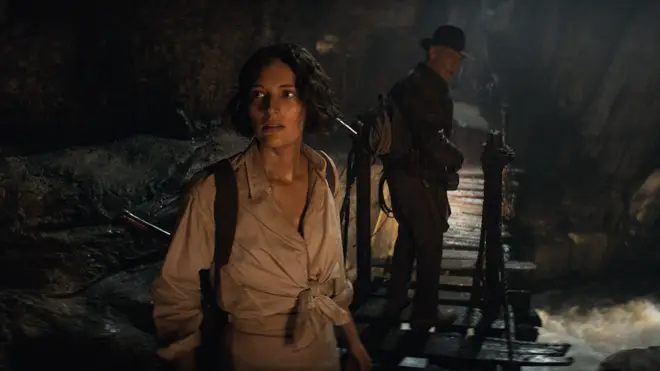On Air Now
The Classic FM Hall of Fame Hour with Tim Lihoreau 9am - 10am
28 June 2023, 11:33

A famous work of classical music makes an unexpected appearance in the fifth instalment of the Indiana Jones film series. We explain why...
Harrison Ford returns to our screens as the intrepid explorer Indiana Jones for the fifth and final time in ‘The Dial of Destiny’, accompanied by the momentous musical musings of legendary composer, John Williams.
The 91-year-old film music great has composed over two hours of new music for the film. However, he is not the only composer to be featured during the movie’s runtime.
In an unexpected twist, the music of Beethoven joins the soundtrack of the fifth Indiana Jones film two-thirds of the way through the film – but perhaps not in the way you might think.
To learn why, grab your hat and your whip, because it’s time to dive into the history of classical music to decipher the meaning behind the appearance of Beethoven in Dr Jones’ final adventure. Warning, there are spoilers ahead.
Read more: John Williams emerges from behind curtain, to conduct surprise ‘Indiana Jones’ at US premiere

Watch the trailer for Indiana Jones 5 and the Dial of Destiny
The fifth instalment of the Indiana Jones series is (mostly) set in 1969, 33 years after the events of the first film ‘Raiders of the Lost Ark’. Dr Jones is now 70 years old and has seemingly left his days of adventuring across the world, looking for ancient treasures, behind him.
But of course, for the film to happen, this doesn’t last long. Thanks to his chaotic goddaughter, Helena Shaw, he is plunged (figuratively and literally) into an adventure that takes him around the world in search of Archimedes’ dial.
At the beginning of the final chapter of the film, our protagonists, Dr Jones and Shaw enter the cave in search of the final resting place of Archimedes.
As they are talking, they notice an echo, and Indy encourages Shaw to sing in order to find where the echo is strongest, as this will determine where to go next. Out of all the pieces of music Shaw could have chosen to sing, she sings the opening notes of Beethoven’s Symphony No. 5 in C minor.

Written over 160 years before the events of the fifth Indiana Jones movie, Beethoven’s Symphony No. 5 has become a mainstay within pop culture.
But its use in this recent Indiana Jones film could be to do with its musical phrasing.
Just like many of the artefacts featured in the storylines of Dr Jones’ adventures, the history of the fifth symphony has inspired a host of theories about what could have inspired Beethoven to write the orchestral work.
Beethoven is said to have described the ominous four-note opening motif of his Fifth Symphony (which is sung by Dr Jones and Shaw in the film) as ‘Fate Knocking at the Door’, or at least that is what critics have attested.
And fate – another word for ‘destiny’ – is certainly what was awaiting Dr Jones and Shaw when they successfully used the Fifth Symphony to guide their way through the cave.
Read more: If Beethoven was completely deaf, how did he compose music?

Beethoven’s Fifth Symphony as a body percussion epic played by hundreds of schoolchildren
Another possibility as to why the Fifth Symphony was chosen for the fifth Indiana Jones film is to drive home the significance of numerical values within the movie’s plot.
The mathematician Archimedes is a central figure in the film, and a numerical code plays an important part in the plot’s development.
So it’s not implausible that the writers behind the adventure romp wanted to double down on the ‘five’ imagery hidden within the fifth film.
Regardless of why the work was chosen, its numerical significance and ties to the discovery of our protagonist’s fate cement Beethoven’s legacy as one of Indiana Jones’ favourites composers, and unofficial companion in his final adventure.